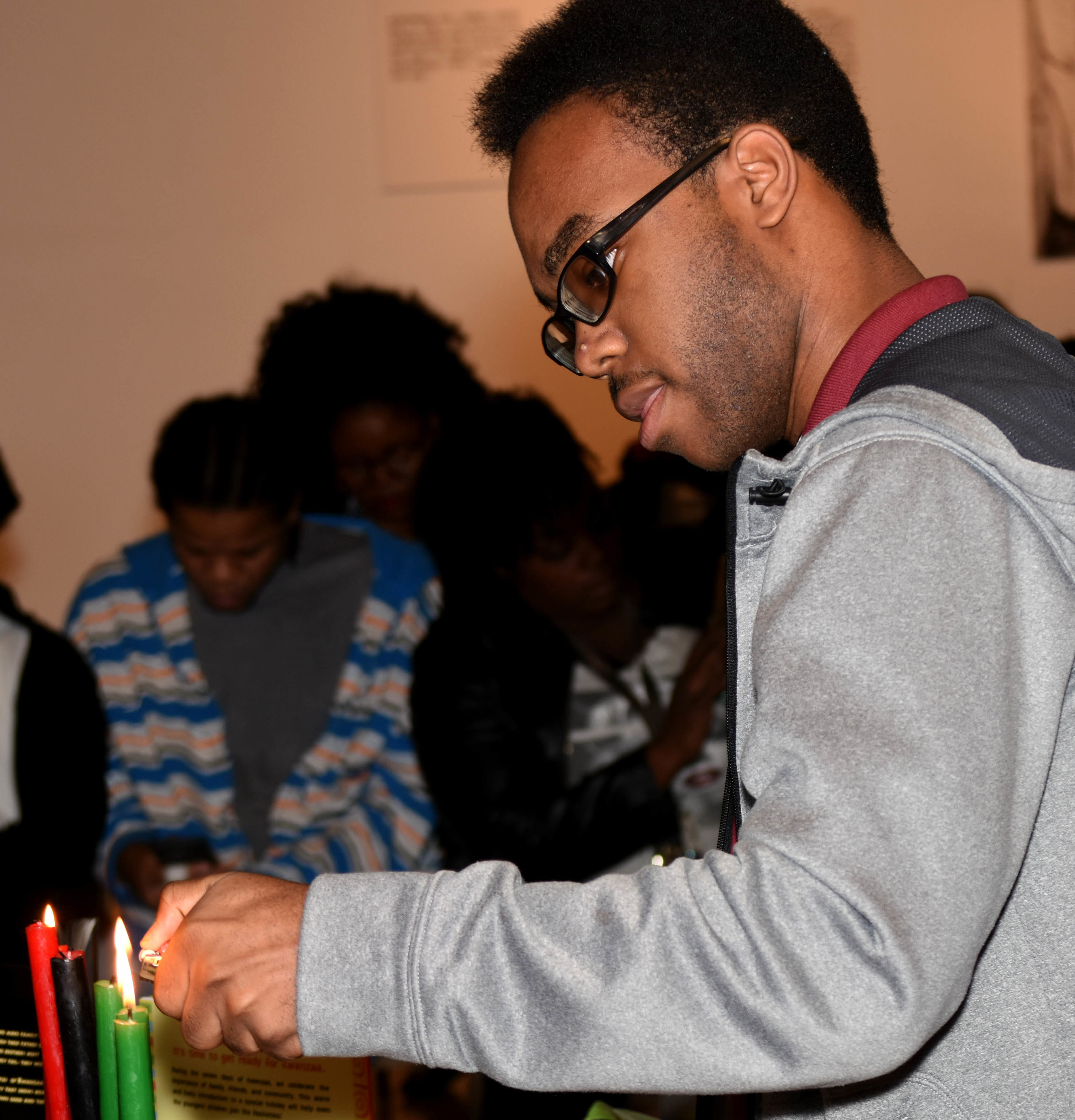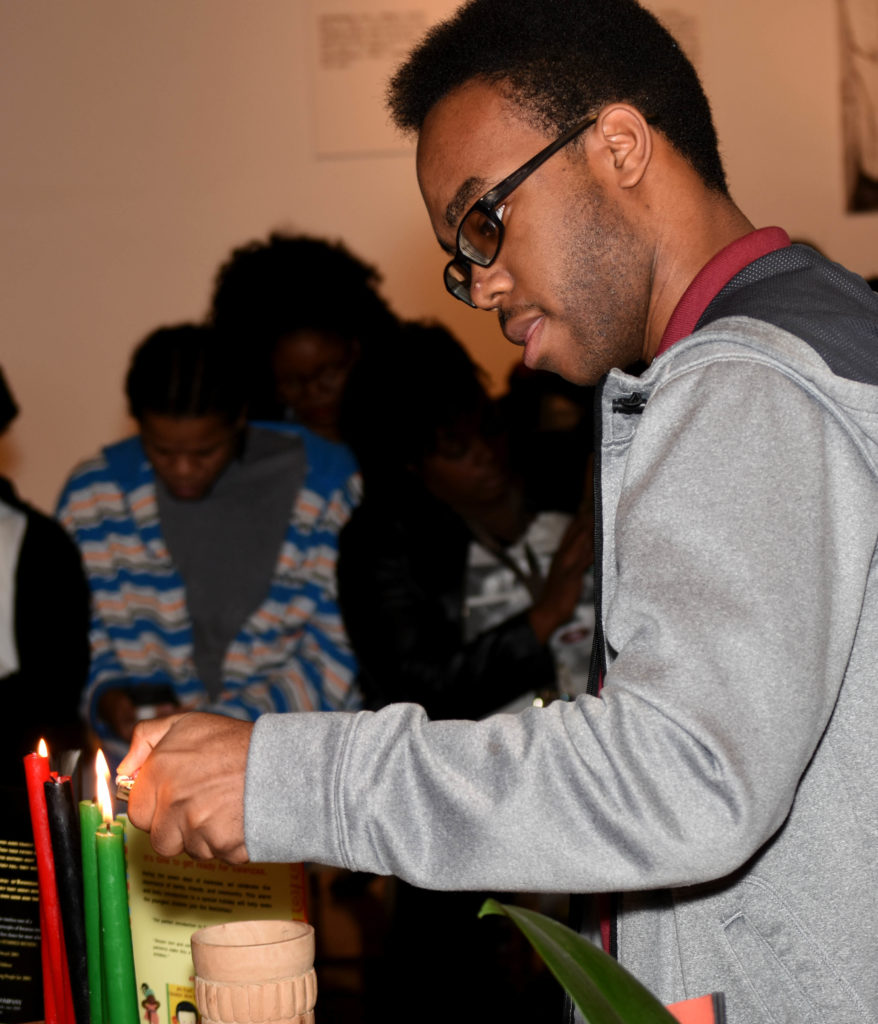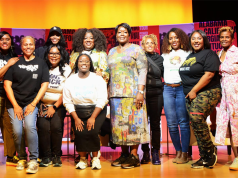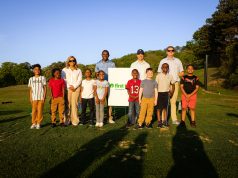
By Solomon Crenshaw Jr.
For The Birmingham Times

Lynndale Simba Smith knows how to captivate an audience.
Smith is the founder, instructor and performer for American African Drummers. On Friday, his percussion performance was only part of his show in the Odessa Woolfolk Gallery at the Birmingham Civil Rights Institute.
He was the guest reader at the BCRI’s Community of Readers Kwanzaa Workshop. Sandwiched between his drumming display, Smith read My First Kwanzaa by Karen Katz as the colorful pages of the book were projected onto a wall.
The BCRI Community of Readers program aims to bridge the gap between parental involvement and literacy. The program is based on improving family reading habits, enhancing the time families spend sharing books and promoting parents’ confidence as educational mentors and leaders.
Kwanzaa is a festival observed by many African Americans from Dec. 26 to Jan. 1 as a celebration of cultural heritage and traditional values.
Kwanzaa celebrates seven principles – Umoja (unity), Kujichagulia (self-determination), Ujima (collective work and responsibility), Ujamaa (cooperative economics), Nia (purpose), Kuumba (creativity) and Imani (faith). They are principles with which Smith has long been familiar.
“We have been doing Kwanzaa since I can remember, since ’89 or ’90, somewhere in there,” said Smith, of his childhood community in Knoxville, Tenn. “It’s very special to elaborate how important the principles are to our lives. I was very excited to do it.”
The 35-year-old Homewood resident set the tone of the evening by warming up on his djembe, a rope-tuned skin-covered goblet drum that’s played with one’s bare hands. After his reading, he performed again with the crowd of nearly 100 chiming in with rhythmic claps, stomps and verbal responses.
Patrons were encouraged to bring various items to the workshop that they could use as percussion instruments. Plastic tubs were distributed to members of the audience to be used as drums.
Attendees ranged from adults to high school students to 2-year-olds. The evening concluded with age-appropriate books being distributed to youths.
Green Acres Middle School eighth-grader Morgan Daniels said she enjoyed the Kwanzaa workshop and was enlightened by the event. “I had no idea how they do stuff,” she said. “It was creative.”
Shiron Barbour, a seventh-grader at Green Acres, liked Smith’s performance but he was particularly impressed by the story that was read.
“It made me want to spend time with my friends and family and share Kwanzaa with them,” he said.
The 7 principles of Kwanzaa
Umoja (oo-MO-jah) Unity stresses the importance of togetherness for the family and the community, which is reflected in the African saying, “I am We,” or “I am because We are.” Kujichagulia (koo-gee-cha-goo-LEE-yah) Self-Determination requires that we define our common interests and make decisions that are in the best interest of our family and community. Ujima (oo-GEE-mah) Collective Work and Responsibility reminds us of our obligation to the past, present and future, and that we have a role to play in the community, society, and world. Ujamaa (oo-JAH-mah) Cooperative economics emphasizes our collective economic strength and encourages us to meet common needs through mutual support. Nia (NEE-yah) Purpose encourages us to look within ourselves and to set personal goals that are beneficial to the community. Kuumba (koo-OOM-bah) Creativity makes use of our creative energies to build and maintain a strong and vibrant community. Imani (ee-MAH-nee) Faith focuses on honoring the best of our traditions, draws upon the best in ourselves, and helps us strive for a higher level of life for humankind, by affirming our self-worth and confidence in our ability to succeed and triumph in righteous struggle. |




